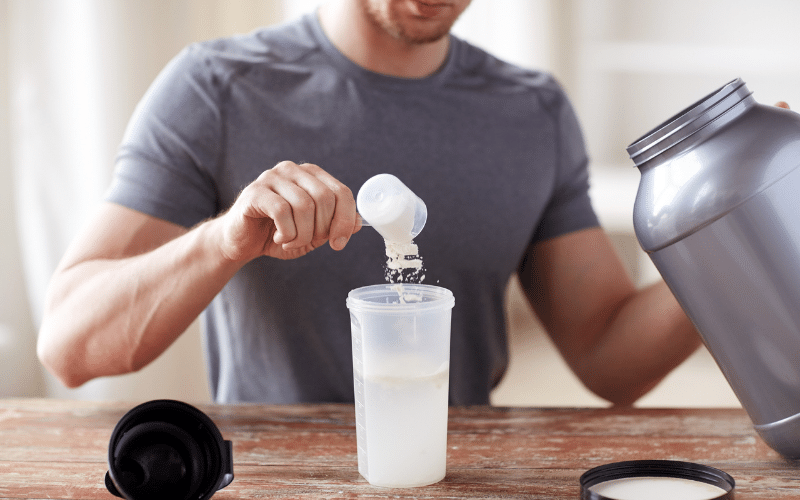Table of Contents

Readers have been asking, does creatine make you bloated? Could it be that creatine is the root cause for your bloating? Do your research before you start taking it!
Do you know that creatine can cause you to be bloated? It’s true! The popular supplement can actually cause you to become inflated and resultant in an increased size.
In fact, some people have even reported that they have developed a mass in their stomach that is twice the size it used to be. If this is causing you problems, it’s time to consult with a doctor about the matter.
The answer is yes, it can! But there are ways to cut down on the amount you take.
Do you know that creatine can cause you to be bloated? The answer is yes, it can. But there are ways to cut down on the amount you take.
What you need to know is that the level of creatine in your body can increase if you take too much. So, if you’re feeling bloated and want to reduce the amount you take, start with these tips:.
What is Creatine and Why Do People Use It?
Creatine is a supplement that can be taken to increase muscle size and strength. It is considered safe for healthy adults, but it does come with some side effects like bloating and water retention.
Creatine is a type of amino acid that’s found in animal and vegetable tissues. It’s used as a supplement by athletes and bodybuilders, as it can increase the amount of muscle mass they have.
Creatine supplementation helps to preserve muscle while also increasing energy and stamina.
Creatine can be taken both orally and through injections, but some people feel that it’s more effective when it’s taken by mouth.
Some brands that sell creatine include: Muscle Tech, Cellucor, Optimum Nutrition, and BPI Sports.
Does Creatine Make You Bloated?
Taking too much creatine can cause bloating and these other common side effects:
- Increase in the level of creatine in your body
- Bloating
- Gas
- Diarrhea
- Headaches
How to Reduce Your Creatine Intake
If you’re taking creatine to build muscle, reduce the amount of creatine you take for a week or two. You can also try using a lower dose than what’s prescribed by your doctor.
If you’re not sure which is best for you, ask your doctor. If you’re taking creatine to help with weight loss, try switching to a different diet plan or supplement that doesn’t have as much creatine in it.
Even if you don’t feel bloated, it might be worth cutting down on the number of times per day that you take the supplement.
Try taking it only once every other day or every third day and see how this goes for a week or two. If it doesn’t work out, reduce the dosage further until your body gets used to it and then increase again slowly.
To avoid side effects like bloating and cramping, cut back on the amount of carbohydrates in your diet while increasing protein intake and upping water intake. The carbs will make the excess stored creatine move around faster, so cut them down!
Side Effects of Creatine
The side effects of creatine are numerous, with the most common being bloating and abdominal swelling.
In addition to these minor side effects, more serious ones can also arise. For example, some people have reported experiencing dizziness as a result of taking this supplement. There have also been reports of liver damage due to using creatine.
While the side effects are not severe, it is important that you consult your doctor before starting this supplement if you are at all concerned about them.
Is Creatine Causing You to be Bloated?
The supplement is known for its ability to help build muscle and increase energy. More recently, it’s been found to help people with a variety of health conditions, including arthritis and heart disease.
It has also been suggested that taking creatine can help you lose weight—if you’re overweight or have a high level of body fat.
However, it’s not recommended to use it as a weight loss tool if your eating habits are already healthy.
Creatine is a popular supplement that millions of people around the world take every day. But before you decide whether or not to start taking the supplement yourself, do your research on the matter!
In particular, keep an eye out for any negative side effects associated with creatine—including bloating, water retention and stomach pain.
If you notice these symptoms appear after beginning the supplement, consult with a doctor as soon as possible about what to do about them.
If you’re still unsure about whether creatine is worth adding to your diet or not, then consider consulting with a doctor before taking it orally.
Conclusion
Creatine has a lot of benefits for your body, but it can also make you bloated. There are a few things you can do to decrease the risk of this happening.
[wp-stealth-ads rows=”2″ mobile-rows=”2″]

